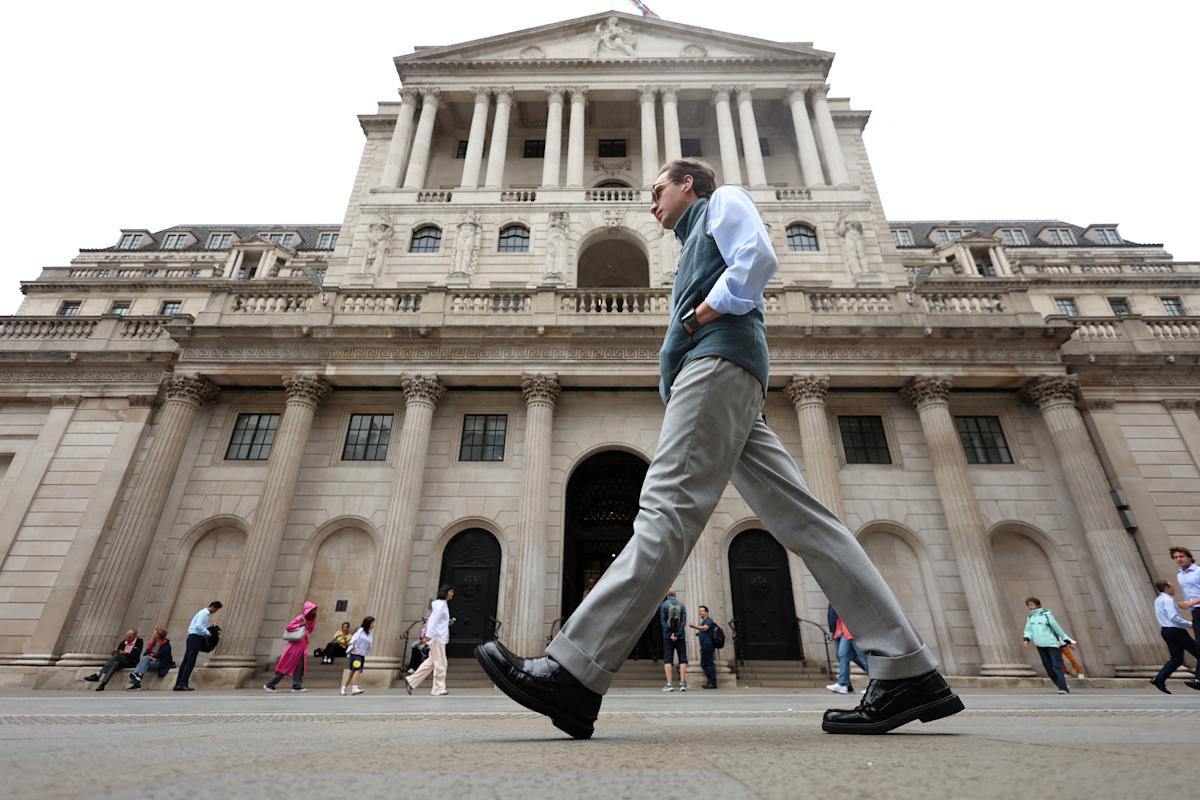
The Bank of England’s (BoE) chief economist, Huw Pill, has signalled growing confidence in the UK’s disinflationary trajectory, saying he is now “more comfortable” with the inflation outlook than he was earlier this year.
Speaking at an event hosted by the Pictet Research Institute, Pill, one of the Monetary Policy Committee’s (MPC) more hawkish voices, admitted to a shift in the balance of risks that have shaped his previous concerns about persistent price pressures.
“It’s always a question of a balance of risks. And you know, I have been on the side of saying maybe the balance of risks are more on the inflationary side than the disinflationary side,” he said.
Read more: Gold climbs to new record high as wars and inflation fears drive haven demand
“I think, through time, and also as markets reprice, that probably is changing. And personally, I’m more comfortable now than I was six, nine, 12 months ago,” he added.
Pill’s remarks come as headline inflation held steady at 3.8% in August, almost double the BoE’s 2% target. While price growth has eased from its post-pandemic peaks, concerns remain over its stickiness, particularly in services and wage inflation.
The BoE held interest rates at 4% in its September meeting, with a 7-2 majority on the MPC in favour of maintaining the current level. Dissenting members Swati Dhingra and Alan Taylor backed a 25 basis point cut to 3.75%.
Read more: FTSE 100 LIVE: Stocks rise as OECD warns tariff impact will hit global growth
At the time, governor Andrew Bailey warned that although inflation is expected to fall back to target, the path ahead remains uncertain. “We held interest rates at 4% today. Although we expect inflation to return to our 2% target, we’re not out of the woods yet so any future cuts will need to be made gradually and carefully,” he said.
The Organisation of Economic Co-operation and Development (OECD) this Tuesday said it expects UK inflation to surge, with Britain experiencing the highest level among the G7 group of advanced economies this year.
Inflation in the UK is expected to reach 3.5% in 2025, 0.4 percentage points higher than its previous forecast, and still remaining far above the Bank of England’s target in 2026, at 2.7%, with soaring food prices pushing up the cost of living.
This would see the UK suffering the second highest rate of inflation in the G7 next year, behind only the US, according to the report.
Pill has also stood apart from most of his colleagues on the issue of quantitative tightening (QT). QT is the process where the BoE cuts the holding of government bonds it build up during the financial crisis and the COVID-19 pandemic.
Last week, the MPC voted to reduce the BoE’s gilt holdings by £70bn over the next 12 months, bringing the stock of UK government bonds down to £488bn from its £558bn level. The BoE began QT in 2022, cutting back from a peak of £875bn in gilt holdings.
Read more: UK braced for highest inflation in G7 and lagging growth, says OECD
Seven MPC members, Andrew Bailey, Sarah Breeden, Dhingra, Megan Greene, Clare Lombardelli, Dave Ramsden and Taylor, voted in favour of cutting its UK government bond purchases by £70bn over the next year.
However, Catherine Mann wanted a larger slowdown in QT, cutting sales to £62bn over the next year.
Pill, though, voted for another £100bn, which would have meant actively selling more bonds than the rest of the BoE policymakers were comfortable with.
Explaining his position, Pill mentioned the importance of sticking to the BoE’s established QT framework to preserve market stability. He said: “What permits QT to operate ‘in the background’ is the scope for Bank Rate (as the ‘active instrument’) to establish a policy stance that delivers inflation sustainably at target given the impact of QT on yields. With Bank Rate away from its effective lower bound and able to change in either direction, this is the environment in which QT has operated in recent years.
“Operating within our established principles has allowed the market to price the impact of QT and has thereby allowed the MPC to set Bank Rate to achieve the inflation target given the impact of QT – as well as a multitude of other factors – on the yield curve, bank behaviour and wider financial and credit decisions.”
Download the Yahoo Finance app, available for Apple and Android.
Disclaimer: This news has been automatically collected from the source link above. Our website does not create, edit, or publish the content. All information, statements, and opinions expressed belong solely to the original publisher. We are not responsible or liable for the accuracy, reliability, or completeness of any news, nor for any statements, views, or claims made in the content. All rights remain with the respective source.
